Roland Yeomans's Blog, page 70
November 24, 2019
WHEN DID WE FORGET TO BE THANKFUL?

A sad reality of human nature is that those who have the most tend to be ungrateful
and those who have the least tend to be the most grateful.
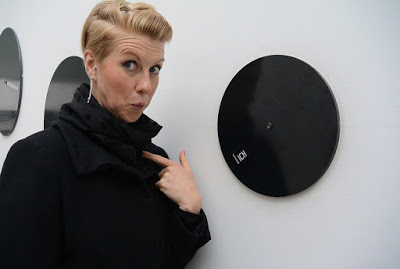
I have met people with so much and still yearn for even more.
On the streets of New Orleans, I met people who had lost nearly everything, yet shared what little they had.

My mother once was a waitress and told me the wealthy gave few tips and then very little while those clearly pinching pennies were generous.
Perhaps they knew what it was like to have little and to work hard for even that.
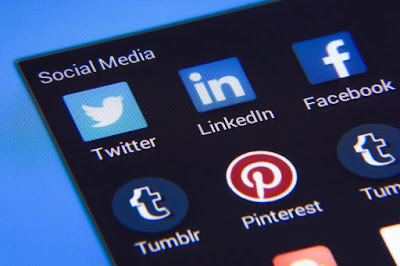
We live in a culture that is becoming devoid of gratitude.
You will be hard-pressed to find it on social media.
Facebook has become a platform for sharing grievances and tirades.
It might be more accurately called "Spitebook".
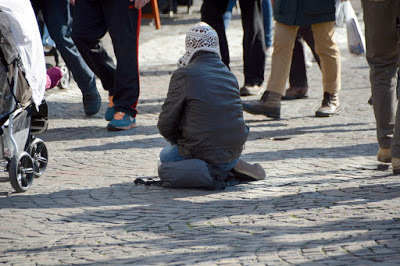
We celebrate Thanksgiving by stuffing ourselves with food in mouth-bulging amounts
rather than feeding people who don't have enough to eat.
We desperately need to recapture the lost art of gratitude.
How do we do that?
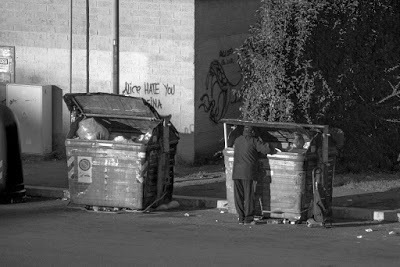
During the course of a day we could look at whatever is in front of us and say,
"How easily and quickly could this be taken from me?"
Our job. Our eyesight. A child, a loved one.
A place to live
A pet. Our health. Our car. Our security, our nation at peace. Our marriage.
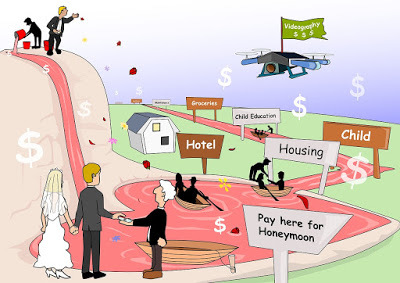
Now, try to imagine attempting to live with those losses.
Perhaps we would be more appreciative of those blessings in our lives.
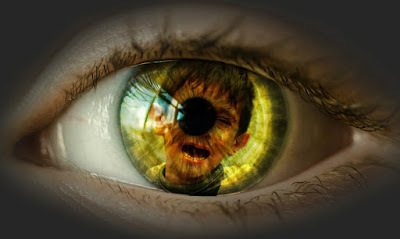
And more compassionate with
those who do not have them.
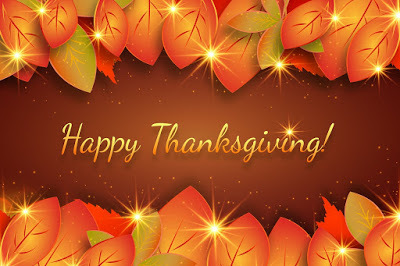
“At times, our own light goes out and is rekindled by a spark from another person. With that remembrance, we should pass that spark to another who currently resides in darkness." - Albert Schweitzer
HAPPY THANKSGIVING, EVERYONE!
Published on November 24, 2019 16:56
November 22, 2019
DEATH OF INNOCENCE
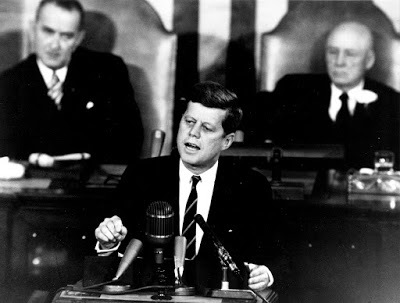
There are not many of us left who saw the assassination of John Kennedy,
but only those of us who were alive before that awful weekend can really know how much it changed America.
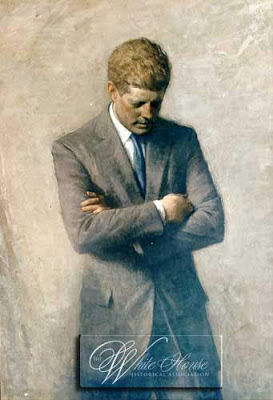
We had been a confident nation.
We had won World War II. We believed in our leaders. We came to see our presidents as all but invincible.
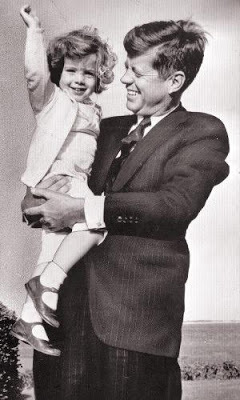
Because of television, we had come to know John Kennedy and his family more intimately than any of his predecessors.
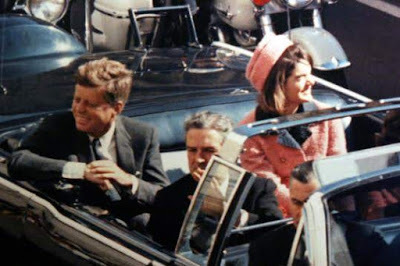
Then, in a matter of seconds, he was killed by a madman.

The entire nation watched in horror and shock as the events of that weekend unfolded on television in real time
-- the FIRST time that had ever happened --
our national confidence was shaken to the core.
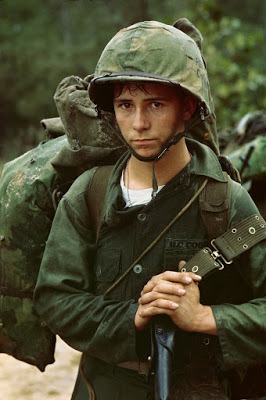
That weekend began one of the most violent decades in our country's history
-- more assassinations, Vietnam, the beginning of Watergate --
a time Americans came to question almost everything we had once taken for granted.
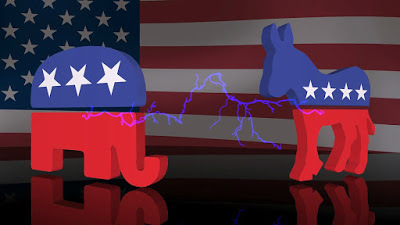
Now, as I look at the current political scene, America seems to have fallen into nightmare.
WHAT DO YOU THINK?
Published on November 22, 2019 07:53
November 18, 2019
Why So Many Young Do Not Want to Leave Their Apartments
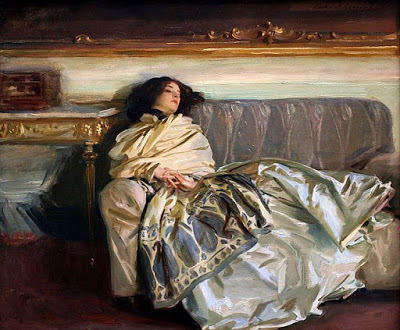 There are quite a few
There are quite a few
There is even a newsletter GIRLS NIGHT IN https://girlsnightinclub.com/
which features “recommendations for a cozy night in” alone or with girlfriends, including books, recipes, gratitude exercises, and candles.
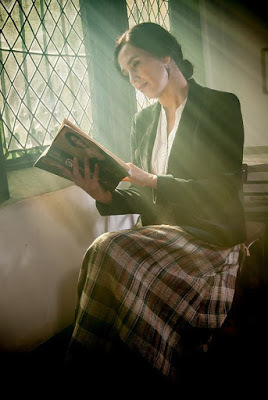
One study found that Americans between the ages of 18 and 24 spend a whopping 70% more time at home than the general US population.
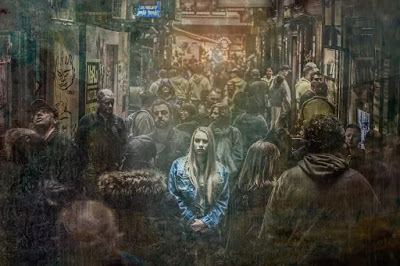
Another study found that 28% of millennials between 24 and 31 said that they preferred to drink at home

because going out was too much effort, compared to just 15% of baby boomers who agreed with that statement.

Netflix and its ilk are facilitating our desire to stay in, rather than compelling us to do so.
They’ve thrived because they tap into the comfort-craving, risk-averse portions of our psyches.

There’s no doubt that some people simply prefer to stay home with a murder mystery and a nice big pizza
while their friends are out hitting the dance floor.
What’s remarkable is not that such preferences exist,
but the glee people online seem to take in shouting about a night in from their digital rooftops.

It is odd ...
there is a part of us that wants to connect.
So we reach for our phones, wanting to share the pleasure we take in being alone.
Be honest, how many of you went to the Girls Night In link?
What do you think of this trend?
Published on November 18, 2019 18:41
November 15, 2019
WRITERS PROFIT FROM LISTENING TO AUDIO BOOKS?

DID YOU KNOW AUDIOBOOKS CAN IMPROVE YOUR WRITING?
A) NO SKIMMING ALLOWED
C'mon, admit it: you skim over the "boring parts" as you read print. It's instinctive by now.
But skimming robs you of the power and purpose of the words you skim!
B) AUDIO LETS YOU CATCH THE PACE, THE FLOW OF THE WORDS
The sounds of the words will bleed into your own writing. You will begin to "see" words as images.
It will limit your use of HE SAID/SHE SAID in every line of dialogue.
Don't tell me those words are invisible to readers -- only to you as you block them out as you write.
You'll discover new ways to add pauses to the spoken lines.
C) YOU'LL HEAR THE WORDS AS YOU WRITE THEM
Maybe in your voice. Maybe in the voice of your favorite narrators.
It will spotlight "kinks" in your paragraphs.
The audio's will create a Theater of the Mind letting you see words as images.
D) YOU'LL "READ" MORE
Stephen King stresses that the more you read the deeper your perspective will be in your books.
You'll read in places you couldn't with a print book: in bed, exercising, gardening, commuting.
You'll discover favorite narrators and seek out books they narrate no matter the genre and
your literary horizons will expand, enriching your prose, breathing new ides into your future novels.
E) YOU'LL LEARN
AUDIBLE has its DEAL OF THE DAY:
I got Arthur C Clarke's 2001 for $2! The intro was by Clarke himself, detailing the unique way he wrote the book.
I got BREAKFAST AT TIFFANY'S read by Michael C Hall of DEXTER fame (great narrator) for $2!
Craig Johnson of LONGMIRE fame detailed at the end of one of his books the origin of his hero and how he writes. Great lessons.
F) YOUR OWN AUTHOR READINGS WILL IMPROVE FROM LISTENING TO PROFESSIONALS.
G) YOUR VOCABULARY WILL IMPROVE
You'll learn new words from their use in context of the action of the novels.
You'll repeat crutch words less as you insert the new words into your prose.
OH, BEFORE I FORGET WHY ALL THIS TALK ON AUDIOBOOKS! HERE'S MY LATEST ONE!
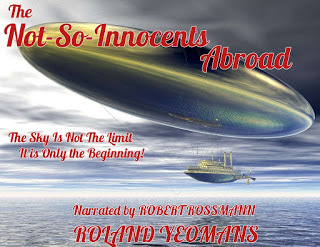 https://www.amazon.com/dp/B01EUFRKKI
https://www.amazon.com/dp/B01EUFRKKIONLY $7.49!
Elu finally escapes his Mirror Prison only to face an insane Abraham Lincoln and
the eternal prankster Mark Twain ... which fate is worse would be hard to call!
Here is John Two Hawks with lyrics
Published on November 15, 2019 07:02
November 11, 2019
WE ALL WALK IN THE DARK
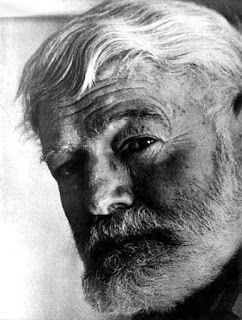
The ghost of Hemingway sat down opposite me, whisky glass in hand.
"What are you writing?"
"An email, ah, computer letter to a friend having a hard time getting her novel written."
He snorted "If you have to have your hand held, then you have no business being a writer."

I glanced up from my laptop and looked at him through the bronze mists of Meilori's, saying low,
"You once said,
'Writing, at its best, is a lonely life.'"
He nodded, "I was right then. I am double right now."
I smiled sadly,
"We all walk in the dark, sir. But that doesn't mean we have to walk it alone."
"You trouble me sometimes, Roland."
I said, "You once said writing had the “the emotional and spiritual intensity and pure classic beauty” few other endeavors ever possess."
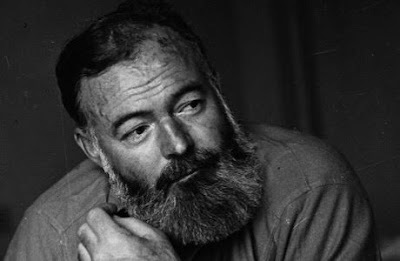
Hemingway gruffed, "Pay heed to your own wisdom and not to others if you would write true."
"It never hurts to look in the past to see if you can find in it a better path to your future."
Hemingway snorted, "I need a drink after that."
He gulped the rest of his whisky down. "You want advice to give your friends? Here's some:
When writing a novel a writer should create living people; people not characters.

A character is a caricature.
If a writer can make people live there may be no great characters in his book,
but it is possible that his book will remain as a whole; as an entity; as a novel.
If the people the writer is making talk of old masters; of music; of modern painting; of letters; or of science
then they should talk of those subjects in the novel.
If they do not talk of those subjects and the writer makes them talk of them he is a faker,
and if he talks about them himself to show how much he knows then he is showing off.
No matter how good a phrase or a simile he may have
if he puts it in where it is not absolutely necessary and irreplaceable he is spoiling his work for egotism.
Prose is architecture, not interior decoration, and the Baroque period is over."
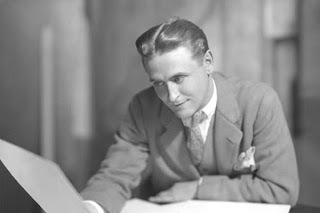
The ghost of F Scott Fitzgerald sat down lazily beside me. "Posh, old boy. Even my eyes glazed at that."
He smiled at me. "I will tell you a secret about most writers:
I’m afraid the price for doing professional work is a good deal higher than they are prepared to pay at present.
You’ve got to sell your heart, your strongest reactions, not the little minor things that only touch you lightly, the little experiences that you might tell at dinner.
This is especially true when you begin to write,
when you have not yet developed the tricks of interesting people on paper, when you have none of the technique which it takes time to learn. When, in short, you have only your emotions to sell.
This is the experience of all writers.
It was necessary for Dickens to put into Oliver Twist the child’s passionate resentment at being abused and starved that had haunted his own abused childhood.
One of Ernest’s first stories ‘In Our Time’ went right down to the bottom of all that he had ever felt and known.
In ‘This Side of Paradise’ I wrote about a love affair that was still bleeding as fresh as the skin wound on a haemophile.
The amateur, seeing how the professional having learned all that he’ll ever learn about writing
can take a trivial thing such as the most superficial reactions of three uncharacterized girls and make it witty and charming —
the amateur thinks he or she can do the same.
But the amateur can only realize his ability to transfer his emotions to another person
by some such desperate and radical expedient as tearing your first tragic love story out of your heart and putting it on pages for people to see.
That, anyhow, is the price of admission.
Whether you are prepared to pay it or, whether it coincides or conflicts with your attitude on what is ‘nice’ is something for you to decide.
But literature, even light literature, will accept nothing less from the neophyte.
It is one of those professions that wants the ‘works.’
You wouldn’t be interested in a soldier who was only a little brave, would you?"
Hemingway snorted, "What would you know of 'brave?'"
Fitzgerald smiled drily, "I was married to Zelda, remember?"
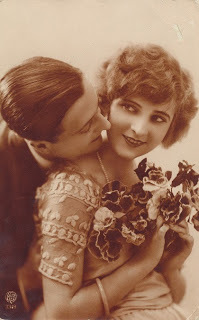
He turned to me.
"If you want to get into the big time, you have to have your own fences to jump and learn from experience.
Nobody ever became a writer just by wanting to be one.
If you have anything to say, anything you feel nobody has ever said before, you have got to feel it so desperately that you will find some way to say it that nobody has ever found before,
so that the thing you have to say and the way of saying it blend as one matter—as indissolubly as if they were conceived together."
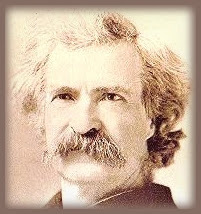
The ghost of Mark Twain settled in the chair on the other side of me as he shook his head.
"Lord, but don't you boys love to pontificate in prose storm clouds!"
He slapped my arm. "I will tell you the simple secrets of writing well:
An author should say what he is proposing to say, not merely come near it.
He should use the right word, not its second cousin.
And above all else he should eschew surplusage!"
Hemingway groused, "I need another drink."
Published on November 11, 2019 22:00
November 10, 2019
Veterans Day Reflections_THINGS LOOK DIFFERENT FROM THE INSIDE

War is fire and explosions and machine guns pounding and dying men screaming for help.
Military service is getting trained for that,
all the while the instructors knowing there is no preparing you
for being shot at, the pain of being wounded, and seeing those around you die or writhe in agony ...
with help nowhere in sight.

Serving is seeing corruption in all layers of the military, spiteful tugs-of-war between rival high-ranking officers ...
veteran sergeants receiving nonsense, sometimes suicidal, orders from green lieutenants.

Millions of dollars are spent in training our troops,
but mere cents go to treating the gaping wounds to the souls and spirits of those veterans who survived the madness.
There was a certain healing in WWII of the soldiers returning home by ship in groups
where they had time to talk to one another of the hell they had gone through.
From Viet Nam onward,
individual soldiers leave a war zone by air and in a matter of hours, they return solo to a country
where lemonade is sold by children on street corners
and people look relaxed without the hollow eyes the soldier sees in the mirror.
Policy-makers little know what they are asking of the men they send into combat
and of the traumatized men who return from the wars they blithely start.
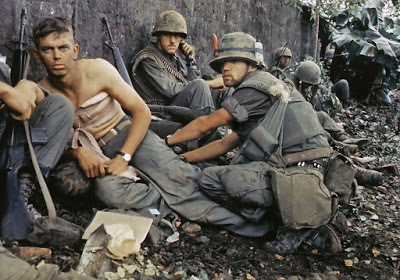
Soldiers deal with death. They take life away from others. This is a task we think belongs to God.
Young men (and now women) are whisked away from high school or college
and asked to take up the role of God.
And we wonder why they come back damaged.
Now, in this age of the remote-controlled drone,
a man can lay explosive waste to a compound in the Middle East and
return home to eat dinner with his wife and tiny daughter.
This is an insane world, facing insane enemies without moral compass or restraint.
So we ask insane things of our soldiers.

No man can walk a dark road of madness, violence, long stretches of boredom, filled with fury and strangers ...
without becoming a stranger to himself.
So, yes, veterans deserve a day to be valued.
Next time you see a veteran, say a small prayer for him or her. They've had their taste of Hell, They could use a bit of Heaven.
Published on November 10, 2019 22:00
Veteran's Day Reflections_THINGS LOOK DIFFERENT FROM THE INSIDE

War is fire and explosions and machine guns pounding and dying men screaming for help.
Military service is getting trained for that,
all the while the instructors knowing there is no preparing you
for being shot at, the pain of being wounded, and seeing those around you die or writhe in agony ...
with help nowhere in sight.

Serving is seeing corruption in all layers of the military, spiteful tugs-of-war between rival high-ranking officers ...
veteran sergeants receiving nonsense, sometimes suicidal, orders from green lieutenants.

Millions of dollars are spent in training our troops,
but mere cents go to treating the gaping wounds to the souls and spirits of those veterans who survived the madness.
There was a certain healing in WWII of the soldiers returning home by ship in groups
where they had time to talk to one another of the hell they had gone through.
From Viet Nam onward,
individual soldiers leave a war zone by air and in a matter of hours, they return solo to a country
where lemonade is sold by children on street corners
and people look relaxed without the hollow eyes the soldier sees in the mirror.
Policy-makers little know what they are asking of the men they send into combat
and of the traumatized men who return from the wars they blithely start.

Soldiers deal with death. They take life away from others. This is a task we think belongs to God.
Young men (and now women) are whisked away from high school or college
and asked to take up the role of God.
And we wonder why they come back damaged.
Now, in this age of the remote-controlled drone,
a man can lay explosive waste to a compound in the Middle East and
return home to eat dinner with his wife and tiny daughter.
This is an insane world, facing insane enemies without moral compass or restraint.
So we ask insane things of our soldiers.

No man can walk a dark road of madness, violence, long stretches of boredom, filled with fury and strangers ...
without becoming a stranger to himself.
So, yes, veterans deserve a day to be valued.
Next time you see a veteran, say a small prayer for him or her. They've had their taste of Hell, They could use a bit of Heaven.
Published on November 10, 2019 22:00
November 7, 2019
SO YOU WANT TO MAKE AN AUDIOBOOK? NOW WHAT?
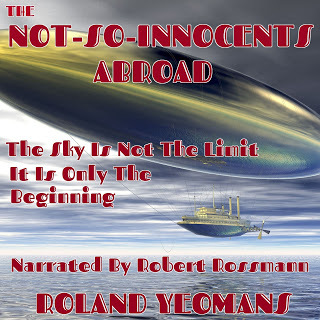 https://www.amazon.com/dp/B07G9XZTDC/
https://www.amazon.com/dp/B07G9XZTDC/C. Lee McKenzie emailed me:
I’d love to know more about how you did the audible. It’s something I hadn’t considered until hearing your book.
I thought if Lee had questions, many of you might have as well. So here goes:
It can be expensive --
There is a price per finished hour of audio – which can vary from $200-$400.
So for a 90,000 word book, this would come out at around 10 hours of finished audio – costing between $2000 and $4000.
This may sound steep –
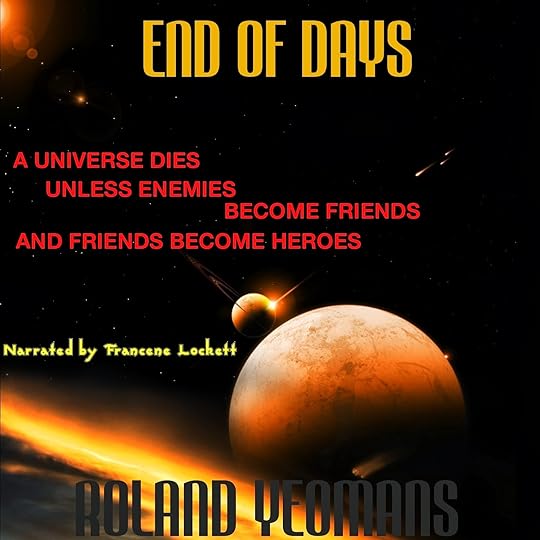 {Only $1.99 if buy the Kindle book}
http://www.amazon.com/End-of-Days/dp/B00E5IBML4/
{Only $1.99 if buy the Kindle book}
http://www.amazon.com/End-of-Days/dp/B00E5IBML4/
but a 10 hour finished book will have at least 75 hours of solid work behind it –
recording, editing and final quality check (it takes 10 hours just to listen to it!).
If you divide it out, this is paying the actor about $27 per hour on the lower rate –
which is not not excessive for a professional running a business.
You shake your head, "How hard could this editing be?"
Editing an audio book is a painstaking job –
removing the errors from the recording
and maybe adding in pauses for effect or cutting long gaps to smooth out dialogue.
In addition you have to be listening out for and then remove,
all the strange wheezes and pops, coughs and clunks and stomach gurgles that somehow get onto the track.
Add to this the removal of odd external street noises (police sirens, dogs barking etc)
which are inevitable if you do not record in a sound-proofed room or have a directional mic.
There is some art involved in this –
deciding to leave a noisy breath in the middle of a sentence or
removing one from the beginning of a phrase will depend on the flow and context of the passage.
Many authors have not planned in advance for a paragraph to be read aloud
and this makes the job of the recording artist quite a challenge.
Frequently there are gaspings as the poor actor struggles to get in enough air after a long sentence with many sub-clauses or commas!
DON'T STOP READING IN DISMAY!
THERE IS ACX!
(Lee ask your publisher if you have the audio rights to your books.
If not, ask them if they could grant them to you since they are not going to use them.
To use ACX you must own the audio rights to your book.)
For those of you who haven’t visited ACX – you should –
it is a brilliant uploading service for independent producers and authors.
They allow authors to advertise for the type of narrator they would like (accent, age, style etc)
and provide an audition text for any interested party to use to record a sound test.
The auditions come in, the author selects the one they like best and then the narrator goes off to do the work.
It is a really simple utility to use
and it marries authors and producers up and handles contracts, payments, sign offs etc
and then gets the finished job up onto Amazon, Audible and iTunes.
They offer all sorts of payment options for producers –
including royalty splits and they then handle the payments to you when the book sales start flooding in….
With this option your outlay is minimal – you are just sacrificing half your future royalties.
But since the narrator is looking at continuing to be paid, she/he is motivated to do her or his very best work to spread "word of mouth." -- so to speak.
On the other hand --
when you as an author offer a royalty share deal to a narrator, you are asking them to work for free.
Hopefully, it will pay off eventually, but that’s not guaranteed.
The narrator is taking a risk –
it could really pay off, given that there’s no upper limit to what a royalty share title could earn.
However, it could completely flop, and if it does, the narrator is out of luck.
Many quality narrators will no longer do Royalty Share for that reason.
BUT THERE IS THE HYBRID OPTION:
The option of paying a low per-finished-hour rate, such as $50 – $100 per finished hour,
plus royalty share, to cover the cost of editing or at least provide a baseline pay
for the narrator in case the audiobook sales don’t come through spectacularly.
This is referred to as a “hybrid” deal.
The way this would work through ACX
is that the author and narrator would create a royalty share contract,
and then the author would also pay the narrator the agreed upon rate.
The hybrid arrangement seems to be a “sweet spot” for a lot of other narrators I’ve talked to –
the best of both worlds.
This would be a good thing to be prepared to offer if you don’t have the budget
to offer a pay-for-production deal, but want to attract a good quality narrator.
HOW TO USE ACX?
1. Go to https://www.acx.com/
2. Create an account (click on the big Get Started button after admiring Neil Gaiman for a minute)
3. This account works with your Amazon account - so you'll have the same sign in and password
4. Creating an account here is very similar to creating an account on any e-book platform - just follow the directions and fill in the info
5. Confirm you own the rights to your titles.
This is similar to adding your books to your Author Central account, sort of an is this book yours? within ACX and then you confirm if it is or isn't.
6. Next comes the bit I found the most tedious - creating your title profile
a. Post a cover photo (don't worry, it's not the FINAL cover art)
b. Post a description
c. Post an excerpt for narrators to audition with
d. Post a write up of anything else potential narrators and producers need to know -
for example, I stated that I needed a female narrator that could handle doing a proper British accent.
e. Post word count, territories (most will be Worldwide like with e-books)
f. Choose your royalty.
This is where you decide if you are going to pay an upfront hourly rate or royalty share.
Obviously, if you pay upfront...it's going to cost something.
If you do the royalty share, you don't pay anything upfront, but you do split all of your royalties with the narrator/producer 50/50.
Remember:
Audible takes 60% of the price. You and the narrator get 20% each of what is left.
I chose to share my royalties, and in fact am happy to share my royalties.
I honestly feel like my narrators put just as much work into creating the audio books as I did writing the books!
7. Now your title profiles are listed on ACX for narrators and producers to peruse.
(A lot of the narrators are also the producers.)
You can wait for them to come to you, but I have no patience,
so I started listening to narrator auditions right away.
(Go up to Search and click on Narrators for hire.)
If you have any more questions, friends, just email me. :-)
Published on November 07, 2019 22:00
November 5, 2019
DON'T JUST WRITE_HELP: IWSG post

Parents express frustration
at how difficult it can be to get
their dyslexic children to read.
It makes sense that dyslexic children
don’t want to read –
who likes to spend time doing
something that can be so difficult?

Reading is one of the important ways that students acquire knowledge about the world.
And, reading also enhances one’s vocabulary,which in turn facilitates thinking.

One of the answers is text-to-speech technology… in other words,
Audiobooks!
Children with dyslexia
can comprehend books that they hear at a much higher level
than they can read.
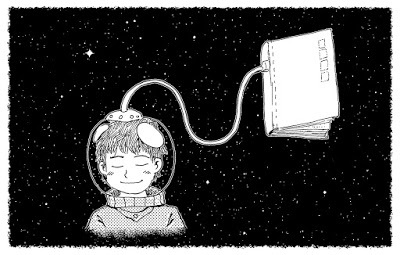 So, to keep developing their oral language,including their vocabulary
So, to keep developing their oral language,including their vocabulary and their understanding
of literary syntax,
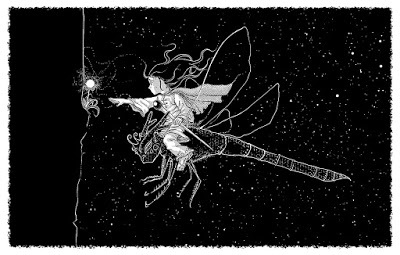 they need to be exposed to books at their oral comprehension level, rather than being limited to
they need to be exposed to books at their oral comprehension level, rather than being limited to books they can read independently.
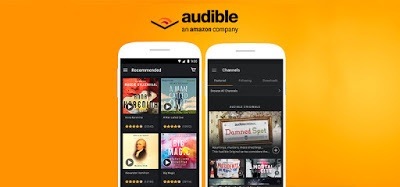
Write a Kindle book,and the text to speech option
is easily accessed
by dyslexic children.

For a more polished narration,audio books provide amore entertaining
and affordable experience.
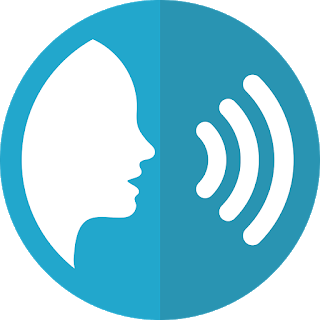 Listening to audio books
Listening to audio bookshelps children
to understand
and remember
how words are pronounced.
 Royalty Share Plus gives you access to an upper echelon of producers
Royalty Share Plus gives you access to an upper echelon of producers who in the past may have only taken pay-for-production deals,
while still being able to produce your audiobook affordably at a rate that suits your budget.
Through the Royalty Share Plus contract, you may negotiate a lower Per-Finished-Hour fee than through the Pay-for-Production contract because the Producer will receive a share of royalties upon completion of the audio book.
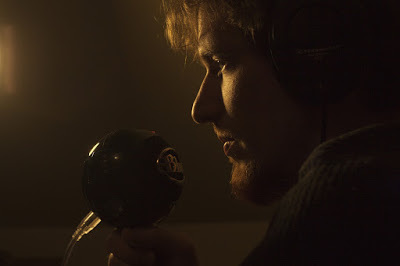 A beginning narratormay still accept a simpleRoyalty Sharewhere ACX gets 50% of the sales,he gets 25%,and you the other 25%
A beginning narratormay still accept a simpleRoyalty Sharewhere ACX gets 50% of the sales,he gets 25%,and you the other 25%
It's a way for both you and the narrator to get your work out there.
 And perhaps to help the world of a Dyslexic studentto grow richer.How cool would that be?
And perhaps to help the world of a Dyslexic studentto grow richer.How cool would that be? Oh, by the way ...
I really want to see this TV series
next year
Published on November 05, 2019 22:00
November 4, 2019
NO REWINDS TO LIFE

Dorothy Parker, Mark Twain, F. Scott Fitzgerald, and Ernest Hemingway (their ghosts rather) and I were playing poker at my table at Meilori's.
Dorothy Parker took a sip of her whiskey and smiled at me.
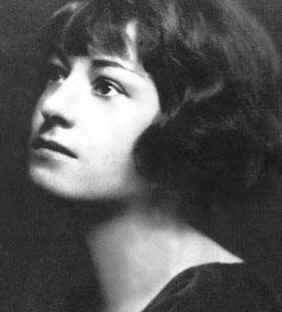
"If you have any young friends who aspire to become writers, the second greatest favor you can do them is to present them with copies of The Elements of Style.
The first greatest, of course, is to shoot them now, while they’re happy.”
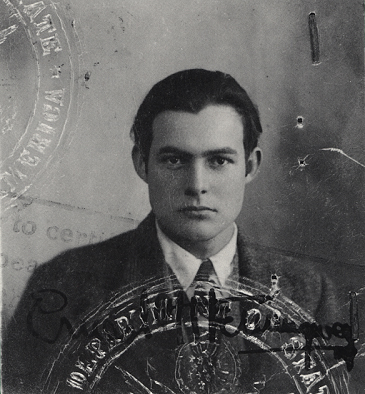
"Bah!" snapped Hemingway. "The lemmings are throwing together words just as fast as they can to create hovels of novels."
Mark lit a cigar and grinned,
"Well, I certainly believe in using the right word not its second cousin. Hemingway, did you mean to rhyme? Weren't you a poet, too, Dorothy?"
Dorothy bent down, grabbed a rubber doll whose throat was torn from ear to ear, and tossed it to her poodle --
who faithful even beyond death -- lingered beside her mistress.

"Ha! My verses. I cannot say poems. Like everybody was then, I was following in the exquisite footsteps of Miss Millay, unhappily in my own horrible sneakers.
My verses are no damn good.
Let’s face it, honey, my verse is terribly dated—as anything once fashionable is dreadful now.
I gave it up, knowing it wasn’t getting any better, but nobody seemed to notice my magnificent gesture."
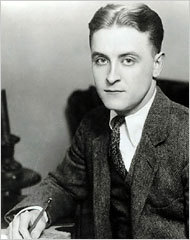
Fitz, as he liked me to call him, took a sip of his own champagne. "Never confuse a single failure with a final defeat."
Hemingway gruffed, "We are all defeated in the end. It is only the struggle that matters and why you struggle in the first place."
Hemingway glared at Ratatoskr (the Asgardian squirrel)
who scampered from ghost to ghost, looking at their hands and whispering in my ear. "He's telling you our cards, isn't he?"
I shook my head. "He's merely teasing you and telling me terrible jokes."
"How terrible?" frowned Twain.
I sighed, "What is the difference between snowmen and snowgirls?
"What?" asked Hemingway.
I answered, "Snowballs."
Dorothy groaned, "Ouch!"
I said to her,
"It’s a popular theory that there was much more communication between writers in the twenties. The Round Table discussions in the Algonquin, for example."
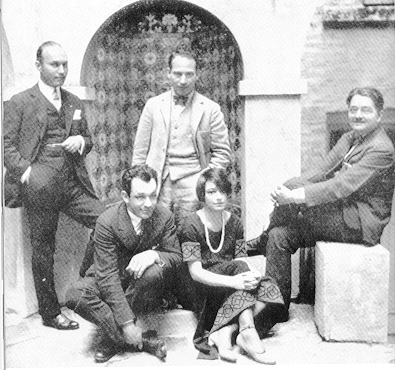 {Dorothy and the rest of the Algonquin Round Table}
{Dorothy and the rest of the Algonquin Round Table}"Gertrude Stein did us the most harm when she said, 'You’re all a lost generation.' That got around to certain people and we all said, 'Whee! We’re lost.'
Perhaps it suddenly brought to us the sense of change.
Or irresponsibility.
But don’t forget that, though the people in the twenties seemed like flops, they weren’t.
Fitzgerald, over there and the rest of them, reckless as they were, drinkers as they were, they worked damn hard and all the time."
I asked, "Did the “lost generation” attitude you speak of have a detrimental effect on your own work?"
"Silly of me to blame it on dates, but so it happened to be.
Dammit, it was the twenties and we had to be smarty. I wanted to be cute. That’s the terrible thing. I should have had more sense."
Fitz sighed,
"At eighteen, our convictions are hills from which we look. At forty-five, they are caves in which we hide."
Mark Twain nodded,
"Each day is like a coin. We can spend it any way we like. But we can only spend it once."
Hemingway lit his own cigar and puffed out the smoky words.
"The living think they have more days than they do. They look out at a thousand lives.
At the end, they'll turn around and find only one --
and if they frittered away precious days investing in work that is inferior, that one life will be inferior."
Fitz looked into the shadows.
"All good writing is swimming underwater and holding your breath, knowing it will not last."
Ratatoskr looked up at me from the table top. "What do you think of this NaNo nonsense, Roland."
I smiled sadly. "Some of my friends are for it. Some of them are against it."
Dorothy asked, "And you?"
"I'm for my friends."
Ratatoskr groaned.

Published on November 04, 2019 22:00



